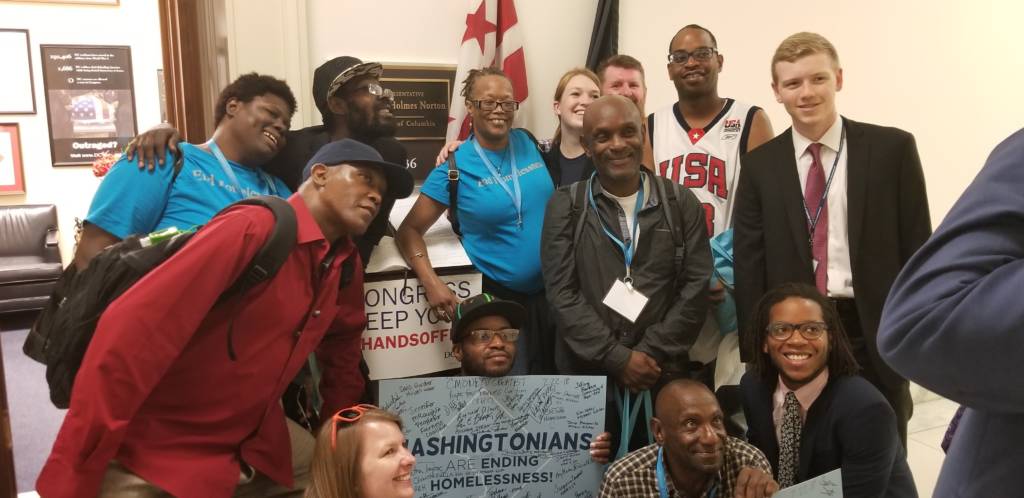This year was by far my best experience at the National Alliance to End Homelessness conference. As in past years, I went looking for discussions on how to realistically come together on public policy to address this national crisis. Past conferences, to me, seemed more about the business of managing homelessness instead of preventing and ending it.
I’m proud to be a lifelong D.C. resident. And as someone with lived experience going through homelessness, I’m honored to have worked alongside so many people who are dedicated to raising their neighbors out of the impoverished conditions they find themselves in. That work has included sitting on a number of boards here in the nation’s capital. I thank the Lord for a chance to try to help reach people in need of affordable, sustainable and accessible housing.
“Universal Housing” is what I and my colleagues in advocacy at the People for Fairness Coalition call it.
I went to my first conference session, “Ending Homelessness 101,” with that universal right to housing in mind. The facilitator from the National Alliance to End Homelessness talked about the need to build and produce more affordable housing in low-income communities. She also emphasized the need to reach out to people on the verge of homelessness and said it is crucial to provide viable options before someone loses their housing. She also said employment is a big part of ending homelessness and wages have not kept up with the cost of housing.
My next session was on lessons learned about homelessness in both the United States and the United Kingdom. I was pleased to learn the U.K. has adopted a form of universal housing. I hope America follows their lead. Even though they are moving in the right direction, the U.K. still has a lot of work to do in order to house and care for all of its vulnerable people.
My next session was about getting the public to seek more resources through ballot initiatives. I’ve heard of some promising ballot initiatives out west that aim to bring more sustainable and affordable housing to low-income Americans. But we have already tried that strategy here. In 2012 we put forward a ballot initiative to make it so all people who qualify for housing assistance would receive it (universal housing).
Senator Cory Booker talked about this need in his keynote address at the conference. He said approximately one in four people who qualify for housing assistance never receive it. In part, he blamed a lack of will from public officials to truly address people’s housing needs. By the time Booker finished sharing stories about his efforts to achieve fair housing in New Jersey, most of the people in the room were in tears.
Our 2012 ballot initiative was thrown out due to the potential cost. I learned then that D.C. stipulates you cannot propose any ballot initiative that would have a fiscal impact on the city budget.
For the rest of the conference, I went to sessions focused on racial disparities and homelessness and sessions focused on how to get people with lived experiences trained and employed as peer supporters throughout the government’s coordinated response to homelessness.
Mayor Muriel Bowser was also a keynote speaker. She told attendees about the great success D.C. has been having in housing, about how the number of families experiencing homelessness has been greatly reduced and about how we in the advocacy community support her and make sure our families are housed in safe communities. The one thing that stuck out in my mind was the six percent increase in homelessness for men and women over the age of 55 in the District.
Many advocates I work with for the homeless community have been trying to meet and collaborate with Mayor Bowser or Congresswoman Eleanor Holmes Norton to end chronic homelessness here. I hope the change in tone at this year’s conference means we might connect with both of these officials in the near future.
With that in mind, this was also the first year D.C. had an official delegation for the conference’s “Hill Day” to lobby Congress. I was honored to be part of that delegation along with it’s captain, fellow Street Sense Media vendor Reginald Black. We went to Rep. Norton’s office to ask the congresswoman take more of a leading role in pursuit of universal housing rights for low-income D.C. residents.




